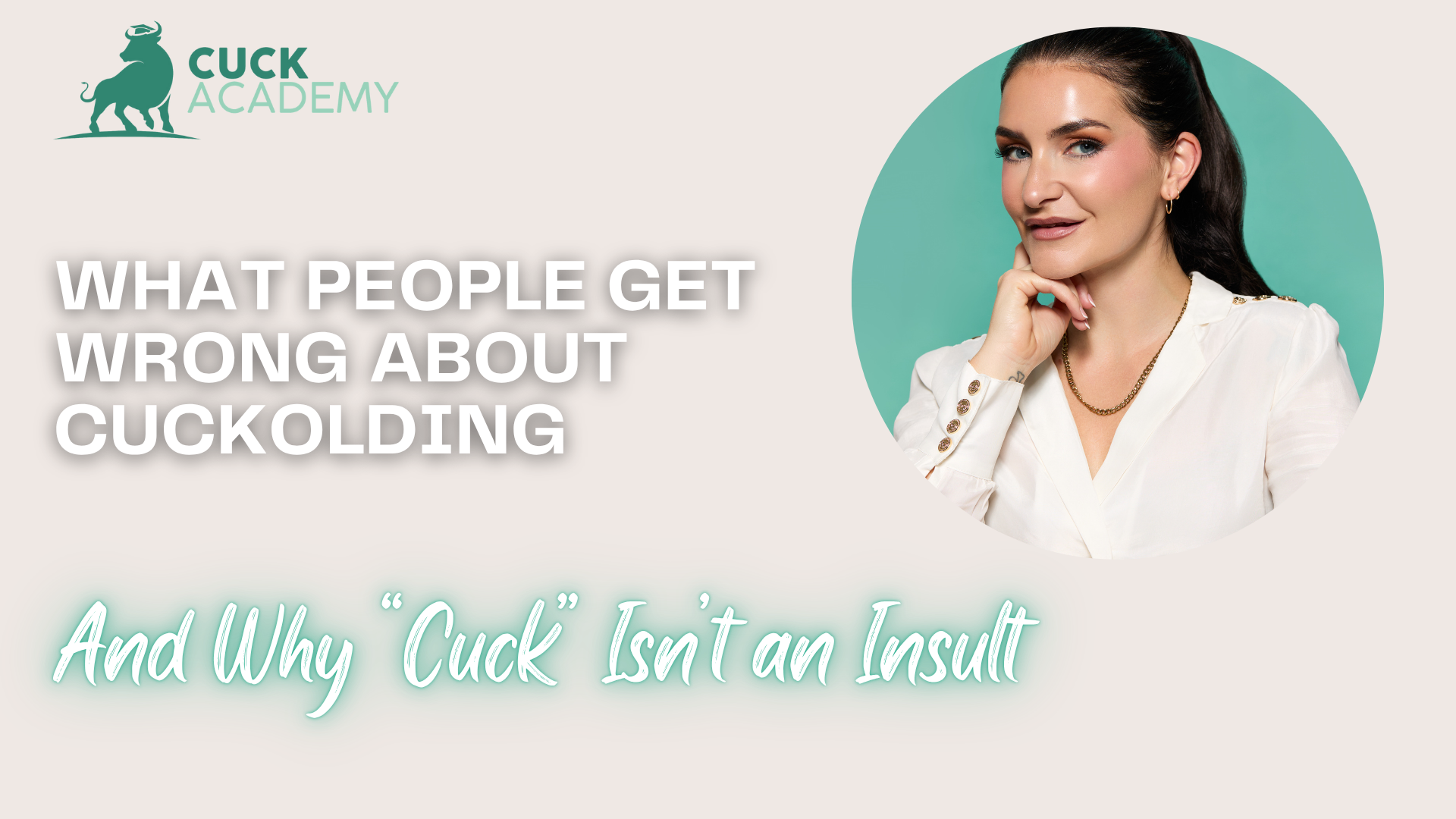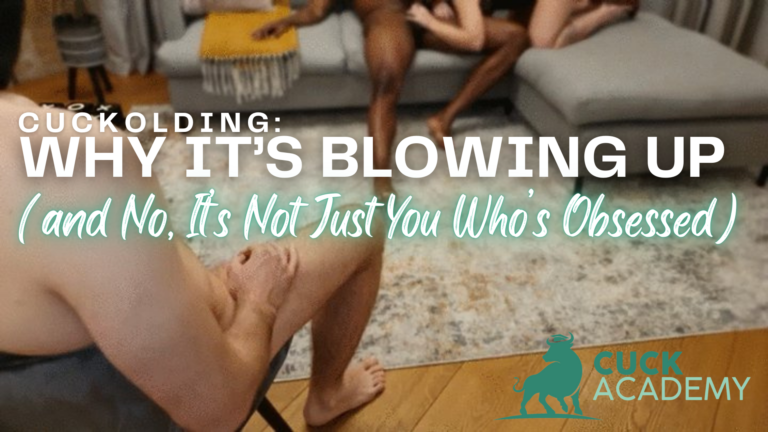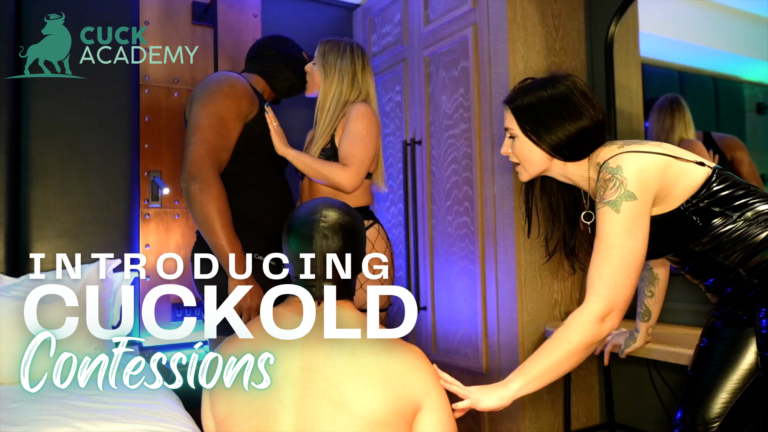Scroll through social media and you’ll see the word cuck flung around like it’s an insult — shorthand for weakness, submission, or emasculation. It’s a word weaponised by people who have no idea what it really means.
But outside of comment sections and angry podcasts, there’s a whole other reality attached to that word — one built on communication, consent, and erotic honesty. A reality I’ve lived, studied, and taught for over a decade.
So let’s strip it back to what cuckolding really is — not the parody, not the insult, but the truth.
Where the Word Comes From (and How It Was Twisted)
The word cuckold has been around for centuries, drawn from the cuckoo bird — a creature known for laying its eggs in another bird’s nest. In medieval England, it was used to mock men whose wives were said to be unfaithful, usually without their knowledge. A man branded a cuckold was ridiculed as weak, gullible, and emasculated — punished socially for his wife’s autonomy.
Surely, we’ve evolved since the Middle Ages… haven’t we? You’d hope so. And yet, the same old insecurities resurface every few years dressed up in memes and Twitter threads.
When Will Smith was publicly called a “cuck” after his wife Jada spoke about their relationship, the internet revealed just how little had changed. The word wasn’t used with curiosity or understanding — it was hurled as an insult, an accusation of weakness, as though a man’s worth depends entirely on controlling his partner’s sexuality.
Even within sex-education spaces, there’s hesitation. The Sexual Health Alliance recently suggested that “hotwife” might be a gentler, safer word — as if language itself needs protecting. But that careful distancing misses the point. The word cuck isn’t dangerous — our cultural fear of it is. Discomfort doesn’t need to be avoided; it needs to be understood. Reclaiming language means refusing to let shame dictate the vocabulary of desire.
That’s the irony. We claim to live in a sexually liberated society, yet the moment a man embraces vulnerability or openness, he’s branded with the same word medieval gossips used to sneer at in taverns.
The Real Meaning of Cuckolding
Cuckolding isn’t about weakness. It’s about awareness.
In a true cuckolding dynamic, everyone knows exactly what’s happening — and that’s the point. The cuckold is a man who finds erotic fulfilment in his partner’s pleasure with another. It’s not betrayal; it’s devotion expressed through vulnerability.
It’s the courage to say, “I want to see you fully desired — even if it’s not by me.”
There’s structure and trust here. The cuckold, the partner, and her lover all exist within an agreement built on honesty and communication. The roles might shift, the emotional landscape might vary — some dynamics are loving and nurturing, others are more teasing or humiliating — but the core remains the same: consent and devotion.
When people reduce it to degradation, they miss the truth that cuckolding is often one of the most emotionally intelligent forms of submission. It demands self-awareness, discipline, and a kind of quiet confidence that most people never reach.
Reclaiming “Cuck”
For me, the word cuck doesn’t represent humiliation; it represents honesty. It’s the unfiltered expression of trust within a relationship where nothing is hidden.
A cuckold isn’t a man who’s been denied power. He’s a man who’s chosen to surrender it — consciously, lovingly, and often joyfully.
There’s strength in that surrender. It takes more self-assurance to kneel willingly than to pretend control you don’t have.
And that’s what people misunderstand. They think cuckolding is about being less than. It’s actually about letting go of ego to experience connection in a new way.
Why Society Still Gets It Wrong
We live in a culture that praises dominance but flinches at the idea of surrender. Especially when that surrender comes from a man. The thought of male vulnerability unsettles people because it dismantles the myths we’ve built around masculinity.
Pop culture hasn’t helped, either. Videos like this one on YouTube rack up millions of views, treating cuckolding as something bizarre or shameful instead of something chosen and built on trust. Every time a conversation about cuckolding goes viral for shock value, it just proves how little most people understand about sexual honesty.
But cuckolding doesn’t diminish masculinity — it redefines it. It’s about men who can find pleasure in service, satisfaction in trust, and pride in their partner’s autonomy. That’s not weakness. That’s evolution.
Redefining the Word for a New Era
So, the next time someone throws “cuck” around like an insult, remember this: most people fear what they don’t understand.
To live this way — consciously, openly, and with love — is not to be mocked, but admired. It’s an act of radical honesty.
Because at its heart, cuckolding isn’t about losing. It’s about choosing. Choosing trust over control. Devotion over ego. And truth over performance.
And maybe, just maybe, that’s what makes the word “cuck” so powerful after all.







